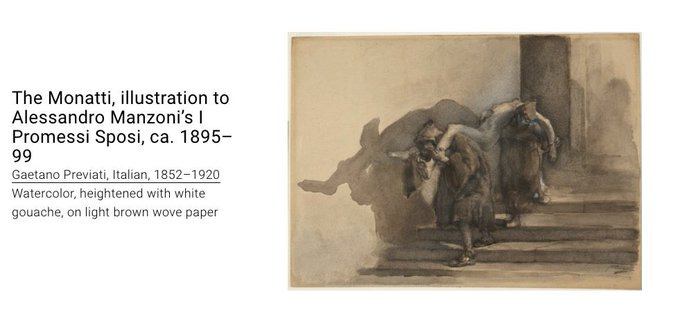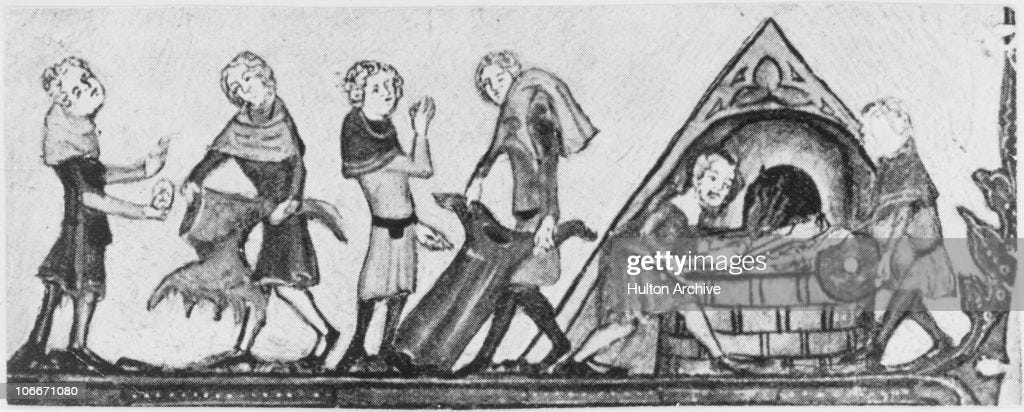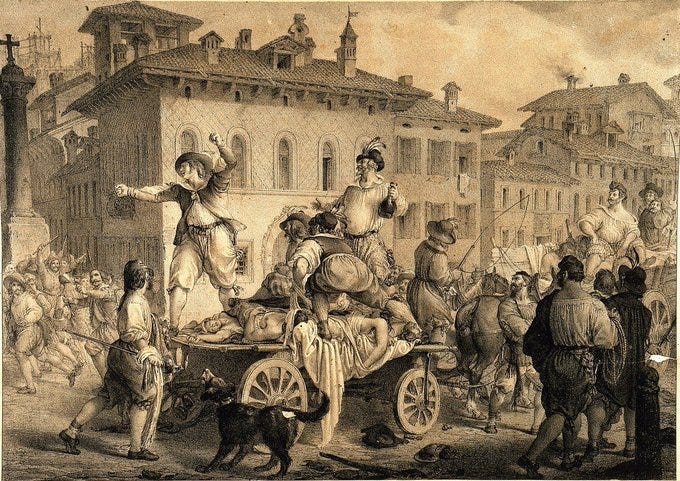"The city was turned upside down"
"The city was turned upside down"
Tales from 17th century Milan tell a woeful tale of chaos and panic in the midst of a world pandemic.
More from Allesandro Manzoni and his novel about love in plague-ridden Milan.
In his 1827 novel I Promessi Sposi (The Betrothed), Italian author Alessandro Manzoni writes about the improbable journey of two lovers affianced in a time of plague. The story is fiction but was thoroughly researched by Manzoni from original source journals to capture the incredible impact of the pandemic on 17th century Milan.
The fatality rate of the plague has been estimated between 30% and 60% but Manzoni points out that the more ruinous part of the disease was its impact on the citizenry itself:
The image of this supposed danger beset and tortured the minds of the people far more than the real and existing danger.
First, rumors started of unclean people spreading the plague:
The city, already tumultuously inclined, was now turned upside down.."
Hoarding, chaos and upturned lives were seen everywhere.
Then the panic of illness. They started to burn and destroy everything which might be infected:
... the owners of the houses, with lighted straw, burned the besmeared spots; and passers-by stopped, gazed, shuddered, murmured.
Suspicions rose of enemies taking advantage of the situation.
Strangers, suspected of this alone, and at that time easily recognized by their dress, were arrested by the people in the streets, and consigned to prison. Here interrogations and examinations were made of captured, captors, and witnesses...
Remember this gem from a few weeks ago?

Further rumors arose of people using tainted oil and water "anointing" walls and benches. If you didn't follow things to exacting measure... measures were taken against you!
In the church of Sant’ Antonio, on the day of I know not what an old man, more than eighty years of age, was observed, after kneeling in prayer, to sit down, first, however, dusting the bench with his cloak. "That old man is anointing the benches!’ exclaimed with one voice some women, who witnessed the act. The people who happened... fell upon the old man; they tore his gray locks, heaped upon him blows and kicks, and dragged him out half dead, to convey him to prison, to the judges, to torture... I think he could not have survived many moments.
Shades of masking tyranny anyone?

A group called the Monatti arose - unelected officials appointed to "enforce good government" (like county health directors) - these "exercised all kinds of tyranny" over the citizenry.
Such a state of things went on and took effect up to a certain period; but, with the increase of deaths and desolation, and the terror of the survivors, these officers came to be, as it were, exempted from all supervision; they constituted themselves, the Monatti, arbiters of everything.
Think Fauci & crew, working completely beyond the law. They are “The Science”!
They entered the houses like masters, like enemies; and, not to mention their plunder, and how they treated the unhappy creatures reduced by the plague to pass through such hands, they laid them - these infected and guilty hands - on the healthy… children, parents, husbands, wives, threatening to drag them to the Lazzaretto, unless they redeemed themselves, or were redeemed, with money. At other times they set a price upon their services, refusing to carry away bodies already corrupted, for less than so many scudi.
Sound like Australia to me. OR remember the U.S. health inspector just giddy with joy that she could shut down the restaurant?

It was believed (and between the credulity of one party and the wickedness of the other, belief and disbelief are equally uncertain)… that both monatti and apparitori purposely let fall from their carts infected clothes, in order to propagate and keep up the pestilence
There’s always ANOTHER variant in the wings to keep things going.
There is nothing new under the sun as the Good Book says. Time just repeats itself and humans by nature devolve under chaos.
Good luck out there!





Comments
Post a Comment